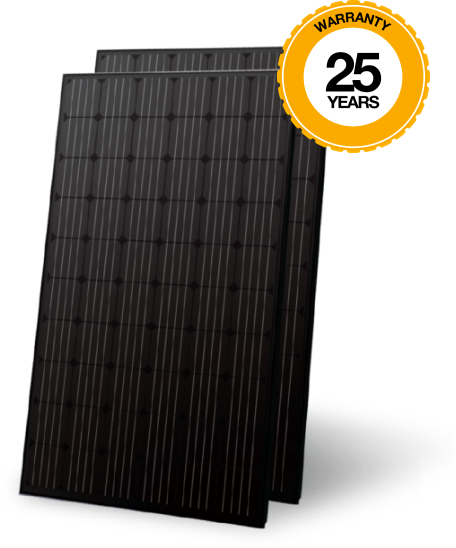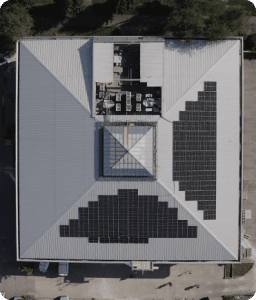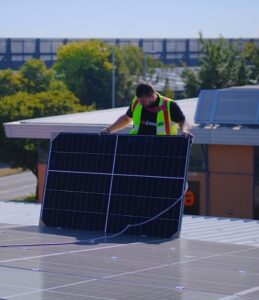SAP
Calculations

What are SAP calculations?
Understanding the Importance of SAP Calculations for Energy Efficiency and Compliance.
SAP calculations (Standard Assessment Procedure) are one of the important factors in the UK building regulations and have been mandatory for all newly constructed houses since 1995. Their main function is to determine the energy conservation status of a house to conform with Part L of Building Regulations. Understanding SAP calculation, especially for first-time builders, appears very complex to developers. Therefore, they are critical in assessing a dwelling’s energy performance and subsequently play the final call on whether the property will get approved for an Energy Performance Certificate (EPC), a legal requirement for selling or renting the dwelling.
SAP Calcs assists commercial solar panel installers/renewable energy buffs to have ‘solar installments’ captured appropriately in the energy performance calculation. SAP Ratings range from 1 to 100+, where 100 represents zero energy cost, and anything higher means the property is exporting energy.
The SAP Calcs Process: Step-by-Step Guide
Completing SAP energy calculations involves several stages designed to ensure that the property meets or exceeds energy efficiency requirements. Here’s a breakdown of the SAP calculation process:
- Design Stage: Before construction begins, SAP assessors work from detailed architectural plans. At this stage, assessors input details of the building’s proposed insulation, heating, ventilation, and lighting systems into a software program to calculate the property’s energy efficiency. The goal is to determine the Dwelling Emission Rate (DER) and Target Emission Rate (TER). The DER represents the actual energy performance of the building, while the TER is a benchmark for the minimum energy performance that must be achieved. The key here is that the DER must be lower than or equal to the TER for the building to pass. This design stage report is also used to generate a “Predicted Energy Assessment” (PEA), which offers a preliminary SAP Rating for the proposed dwelling.
- Construction Stage: During the construction of the building, different designs or materials may influence its energy performance. It is, therefore, crucial for the developers to engage SAP assessors from time to time to inform them of alterations such as different insulation or heating systems. The SAP assessor will also keep track of a building’s fabric energy efficiency as long as it complies with the Fabric Energy Efficiency Standard (FEES). This also entails evaluating the degree of insulation and tightness of the walls, roofs, floors, and windows to heat.
- As-Built Stage: Once the building has been finished, the SAP assessors will come back to the said property and calculate the last details of the construction. This involves the assessment of the installed heating equipment, insulation, and any other renewable technologies, including solar power and battery storage UK systems. The SAP Calcs are then adjusted to the final specifications, and a new EPC is created, which is the certificate indicating the rating of the energy performance of the property. The as-built report arrives at the SAP Rating and will either assign a pass or a fail to the property against the original targets for energy efficiency at the design phase.
- Final Report: The final SAP Calcs report summarises the building’s energy performance. This report will include the DER, TER, Dwelling Fabric Energy Efficiency (DFEE), and Target Fabric Energy Efficiency (TFEE) values and the property’s SAP Rating. A good SAP Rating can significantly reduce energy costs and improve the property’s market value.
SAP Calculations Meaning and Importance
Understanding what SAP calculations are goes beyond just passing a building inspection. In energy efficiency and sustainability, SAP calculations ensure that newly built or renovated homes meet the government’s stringent energy targets. With the increasing emphasis on reducing carbon emissions, SAP energy rating calculations play a pivotal role in achieving sustainability in the UK construction industry.
The SAP energy rating of a property is not only a regulatory requirement but also a significant selling point for buyers. A higher SAP Rating means lower energy bills, reduced carbon emissions, and increased property value. This is particularly important in today’s market, where more buyers seek energy-efficient homes with a low environmental impact.
How SAP Energy Rating Calculations Are Determined
The SAP energy rating calculations are determined by a range of factors that influence the energy performance of a building. These include
- Building Fabric: The insulation of walls, roofs, floors, and windows is the main factor in holding heat and managing energy usage. Building constructions such as insulation will have low heat loss, and the SAP ratings will be high.
- Heating Systems: Central heating technologies or any other improved heating equipment like a new generation of gas boilers, including smart control on the thermostat, and a renewable energy system for heat generation, including panels and pumps, thereby pushing up the SAP rating. Properties with zoned heating and weather compensators can further improve their energy efficiency.
- Lighting: Another important consideration is to ensure that the kind of lighting used is energy-efficient, such as LED bulbs. Those that use a large portion of low-intensity lighting will get high SAP scores.
- Ventilation: Some of these include well-designed and correctly installed mechanical ventilation systems, which are known to help reduce the load on heating and cooling systems, making them efficient in energy usage.
- Renewable Technologies: Renewable materials such as solar PV panels or battery storage can easily increase a building’s SAP Rating. These systems help conserve fossil fuels and hence tend to minimise carbon emissions, enhancing the energy value of the property.
The SAP calculation results in a value between one and something more significant than one hundred, where one hundred refers to zero energy home and anything that is a value higher than one hundred means that the property is an energy exporter. Hiring Solar4Good will help determine the right renewable technologies for your property to enhance your SAP rating.
Benefits of Accurate SAP Calculations
There are several advantages to ensuring that SAP energy calculations are accurate and thorough:
- Compliance with Building Regulations: An SAP Calculation can also help you get an EPC, which is necessary when one wants to let or sell a property. This contains the information that accurate SAP calculations can aid in meeting the standard of Part L of the Building Regulations.
- Lower Energy Costs: Homes that have been accorded high SAP Ratings are energy efficient, thereby putting lesser demands on energy, and hence, the bills are cheaper for the occupants. Probably the most effective ways to diminish energy usage and expenses are to enhance a property’s insulation, heating systems, and indoor lights.
- Reduced Carbon Footprint: Thus, when your building complies with the SAP emissions target, you play your part and contribute to the reduction of carbon emissions in the UK. Solar lighting/solar power/ solar water heating/ green roofs, and rainwater harvesting help to cut down the carbon imprint of the property.
- Increased Property Value: The houses are usually preferred and bought or rented by people with good SAP Ratings because they are associated with low energy bills and negligible effects on the environment. A correct result of SAP calculation can be beneficial and enhance the commercial value of the property to let or sell.
- Informed Design Choices: For architects and developers, collaboration with an SAP assessor right from the designing stage helps them to make informed choices on the kind of materials to use, the kind of heating system, and other renewable sources of energy to include in the design. This makes it better in energy, and it is also fast approaching or meeting the future energy requirements of the property.
Conclusion
Therefore, SAP calculations are not just a draconian requirement for compliance; they play an important role in enhancing standards in energy conservation and combating the emission of carbon in homes in the United Kingdom. Knowing what SAP calculations are and how they arrive at means you can be confident your building is legal and optimized for energy efficiency now and in the future.
Solar4Good is experienced in delivering renewable energy solutions that enable clients to attain high SAP Ratings, which are commercial solar panels UK and battery storage systems for developers and homeowners. With the help of our solar installation company, starting from the design phase, you will be able to achieve energy efficiency and performance targets for your property and significantly decrease energy costs while contributing to a more environmentally friendly future.
Ready to give your project the Solar4Good advantage? Contact us today to install cutting-edge solar solutions that not only secure your SAP pass but also enhance your property’s value, energy efficiency, and sustainability. Solar4Good is here to help you meet your energy goals—faster, easier, and more cost-effectively than ever before! Don’t wait—make the smart switch to solar today!



Frequently Asked Questions
SAP Calculations are the UK government’s method for assessing the energy performance of a building.
They are legally mandated to acquire an Energy Performance Certificate (EPC), which is mandatory before selling or renting a property.
They are required for all new builds, major extensions, and some conversions.
The process involves a SAP assessor reviewing the building’s design and construction details, calculating the energy performance, and issuing a final SAP rating.
A higher SAP Rating means better energy efficiency, which leads to lower energy bills.
No, they must be carried out by a certified SAP assessor.
The cost varies depending on the size and complexity of the property.